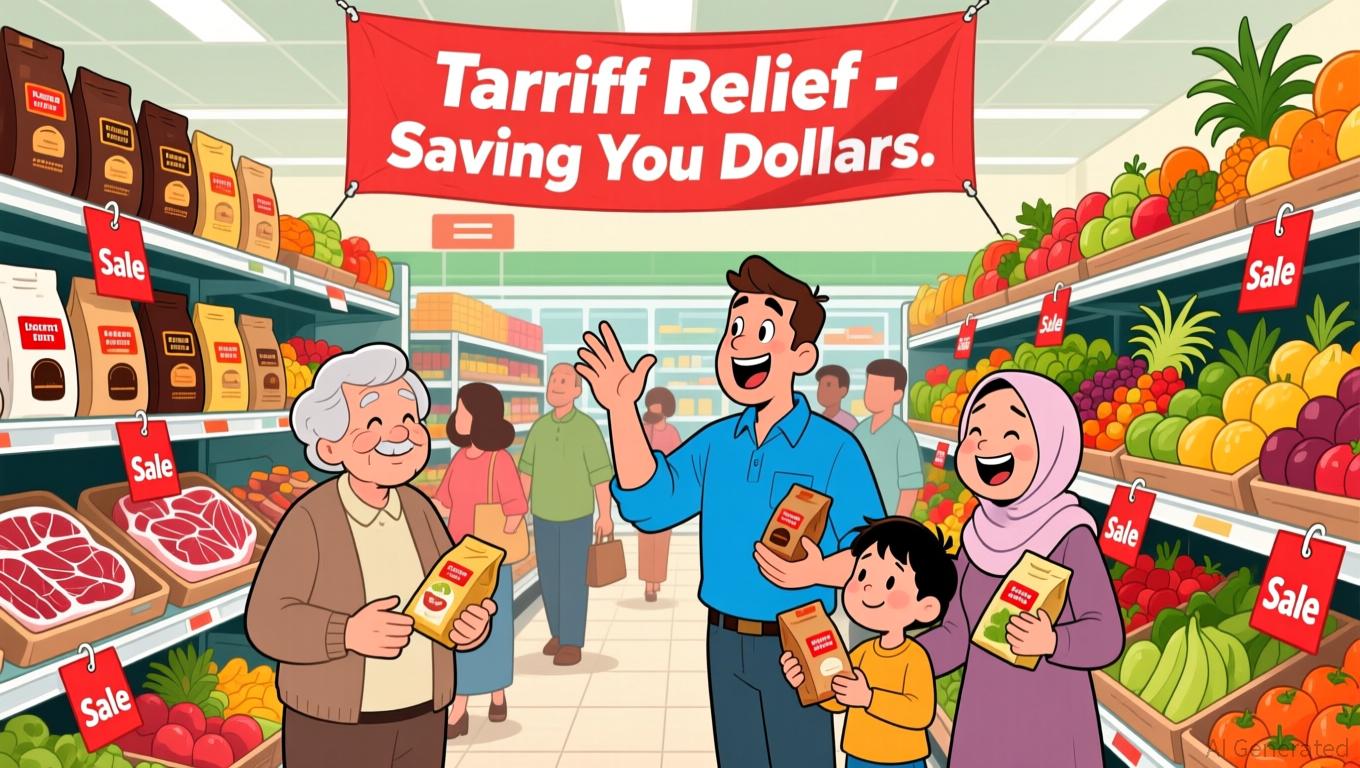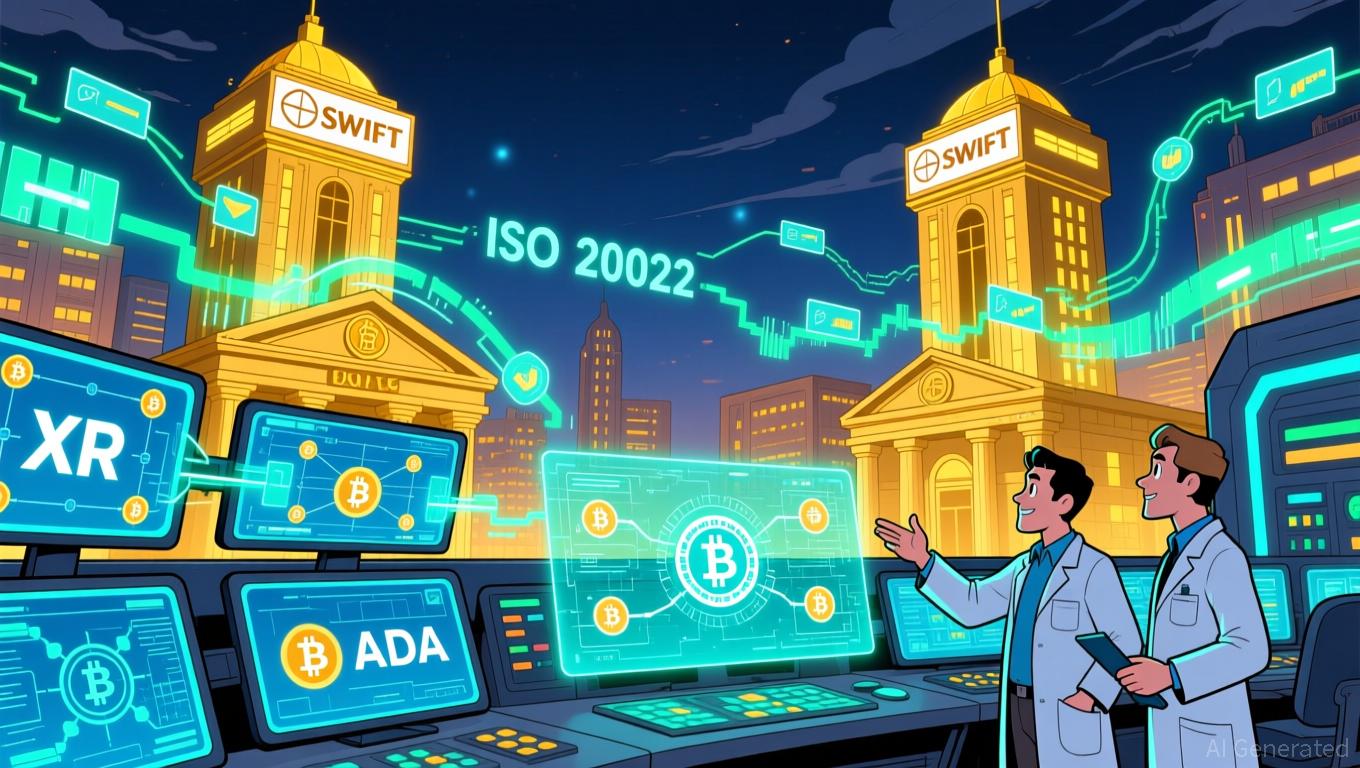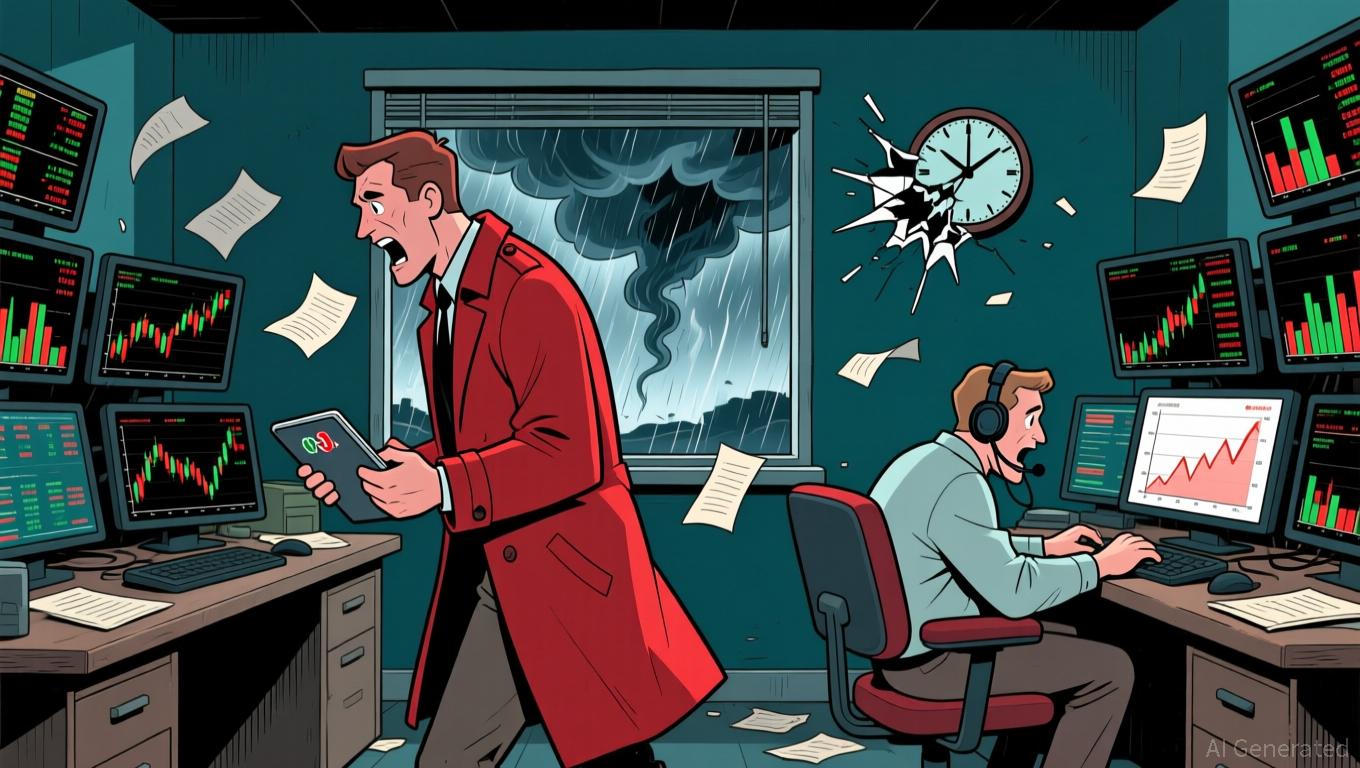Trump Rolls Back Tariffs in Bid to Curb Inflation, Prompting Backlash from Politicians and Industry Leaders
- Trump reversed food tariffs on beef, coffee, and bananas to curb soaring grocery prices and public cost concerns. - The policy shift followed Democratic election gains and economic warnings about inflation from high duties on imports. - Cattle ranchers criticized the move as conflicting with "America First" rhetoric, while Australia and Brazil welcomed tariff cuts. - Economists debate long-term impacts, with some predicting higher prices as supply chains adjust post-tariff reductions.
Donald Trump has made a significant change to his trade approach, reducing tariffs on items such as beef, coffee, bananas, and other food imports in an effort to tackle rising grocery costs and address growing public concerns about the cost of living. The executive order, which is retroactively effective from November 13, eliminates tariffs on more than 100 food items, including essentials like beef, coffee, and tropical fruits,
This move signals a practical adjustment to Trump’s trade priorities. The administration had originally justified tariffs as a way to "boost U.S. investment and manufacturing," but both economists and business leaders have repeatedly cautioned that tariffs on food imports—such as a 50% duty on Brazilian coffee and a 10% base tariff on imports worldwide—have

The White House credited the policy reversal to "significant progress" in trade talks with Argentina, Ecuador, Guatemala, and El Salvador, which allowed U.S. businesses greater access to their markets in return for lower tariffs
Reactions from abroad were varied. Australia, a leading beef exporter, welcomed the end of 10% tariffs on its farm goods, with trade officials describing the tariffs as "an act of economic self-harm"
Experts remain split on the long-term effects. The Tax Foundation noted that before these changes, 74% of U.S. food imports were subject to tariffs
This policy change has also reignited debate over Trump’s overall tariff strategy. While the president promised to use tariff revenue to fund $2,000 rebate checks
As the administration works through these issues, the rollback of food tariffs highlights a broader recognition that trade policies can both increase and decrease costs—a point economists have long stressed
Disclaimer: The content of this article solely reflects the author's opinion and does not represent the platform in any capacity. This article is not intended to serve as a reference for making investment decisions.
You may also like
XRP News Update: ADA and XRP Highlighted as ISO 20022 Connectors Amid Ongoing Debate Over Compliance Assertions
- XRP and ADA gain attention as ISO 20022 migration nears, with Cardano's founder positioning ADA as a bridge between traditional and decentralized finance. - Critics clarify no cryptocurrency is inherently ISO 20022 compliant, emphasizing the standard governs financial messaging systems, not digital assets themselves. - Ripple's enterprise solutions enable ISO 20022 message compatibility via RippleNet, while XRP's price near $2.42 sparks optimism amid Ethereum ETF outflows. - Cardano's institutional adopt

HBAR's bears encounter a comeback as buyers set their sights on the neckline
- HBAR's 11% drop breached a key neckline, triggering bear trap concerns as 73% of leveraged positions are now short-biased. - A bullish RSI divergence and $5.37M inflow into the Canary HBAR ETF suggest potential short-covering above $0.160. - Bitget's $16.7M short dominance creates asymmetric risk, with a rebound above $0.160 likely to trigger forced liquidations. - However, a breakdown below $0.160 could validate the bearish pattern, targeting $0.113 with strong on-balance volume support.

XRP News Update: XRP ETFs Experience Growth While Solana Faces Challenges, Regulatory Certainty Still Unclear
- XRP ETFs outperform Solana as Canary’s $58M product leads 2025 crypto ETF debuts amid regulatory uncertainty. - XRP’s institutional appeal contrasts with Solana’s niche traction, while SEC inaction delays broader adoption. - XRP’s $2.24 price struggles reflect bearish momentum, but "buy the dip" optimism persists ahead of potential rebounds. - Canary pauses new XRP ETFs pending SEC clarity, highlighting regulatory risks as crypto markets face $1.4B in ETF outflows.

Vitalik Buterin’s Latest Support for ZK Technology and What It Means for the Cryptocurrency Industry
- Vitalik Buterin promotes ZK technologies as Ethereum's scalability and privacy solution, accelerating institutional adoption through technical upgrades and partnerships. - ZKsync's 15,000 TPS Atlas upgrade and Polygon's AggLayer framework highlight ZK's role in cross-chain efficiency, with ZKsync's token surging 120% in 2025. - Institutional investments in Succinct Labs ($55M) and Aztec Network ($100M) underscore growing confidence in ZK's ability to solve blockchain's scalability-privacy trilemma. - ZK
